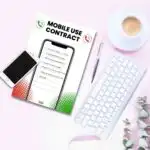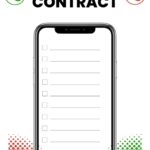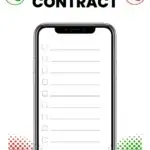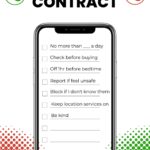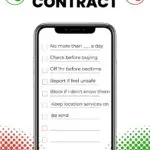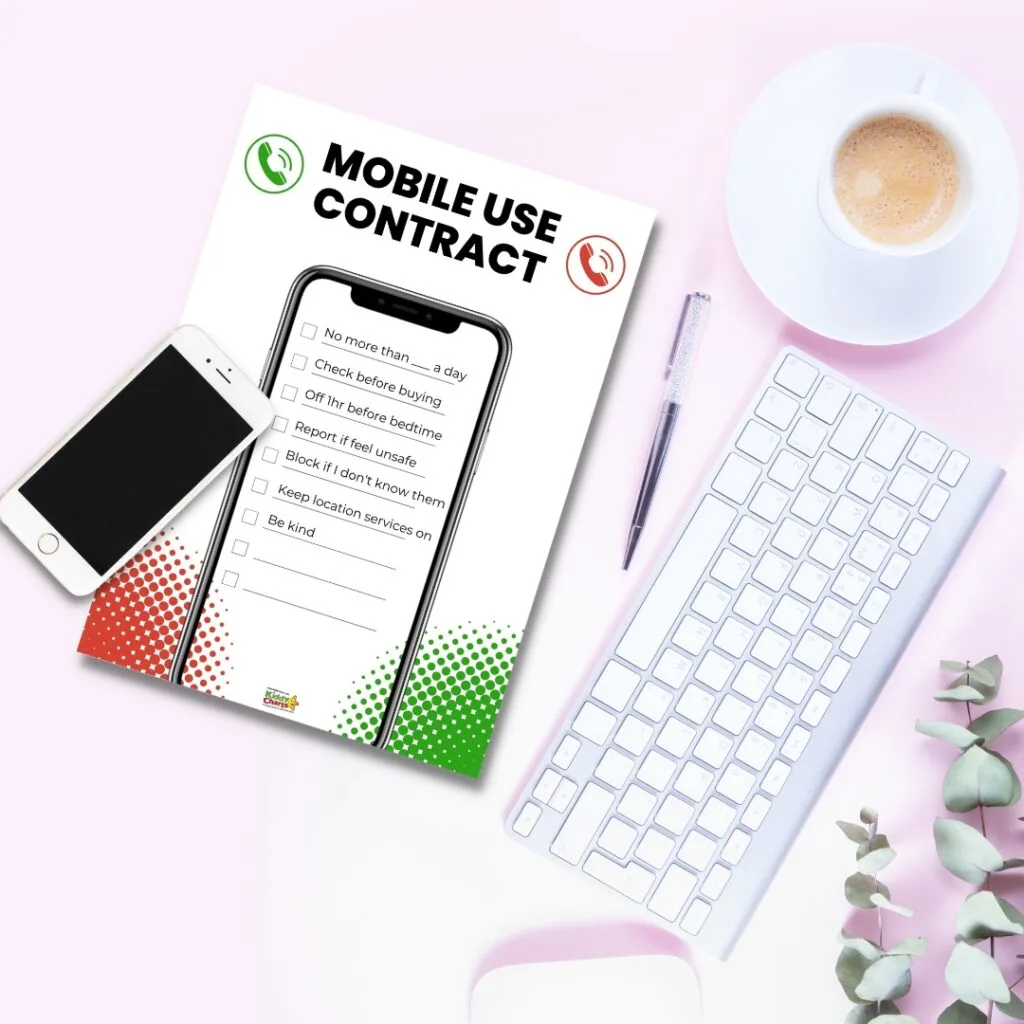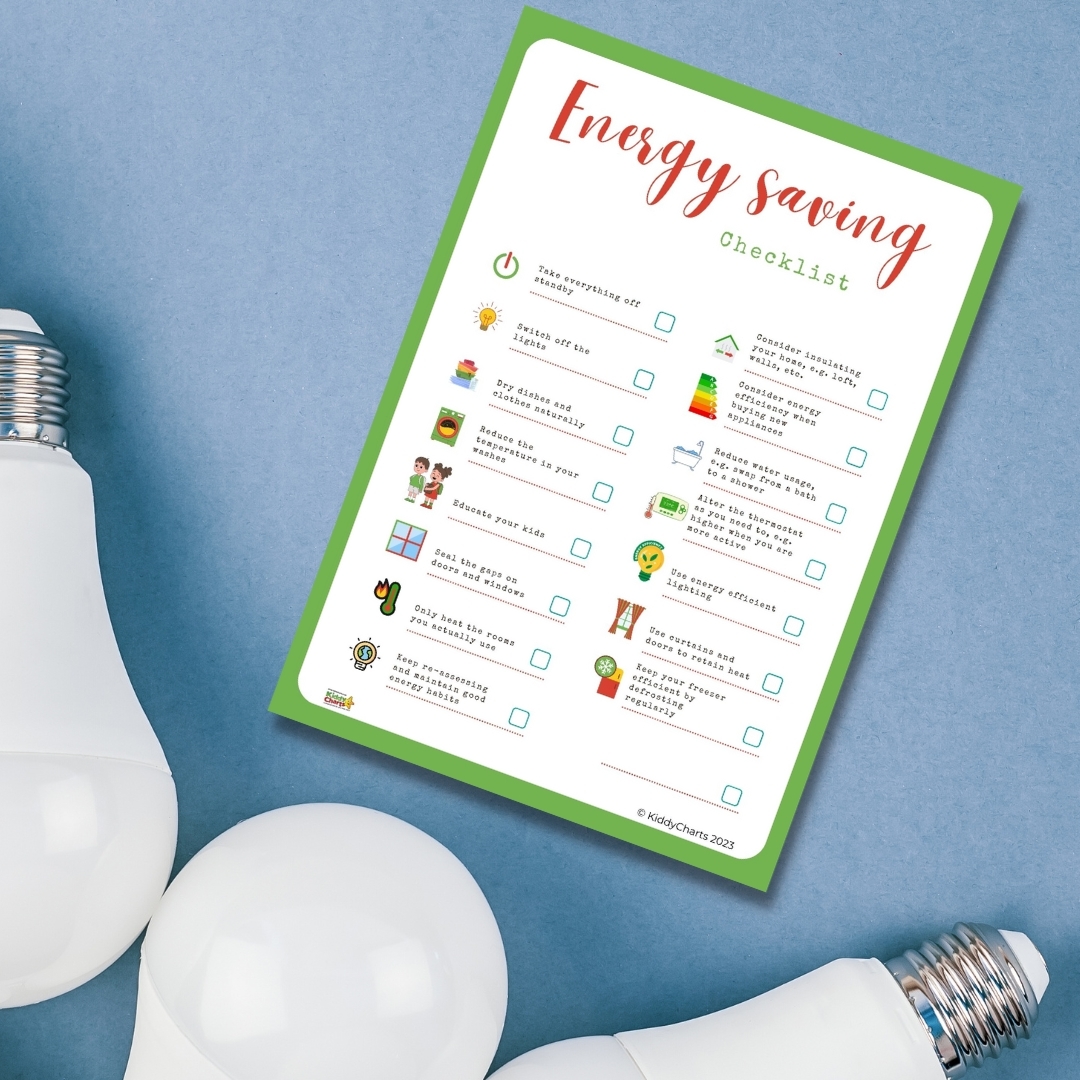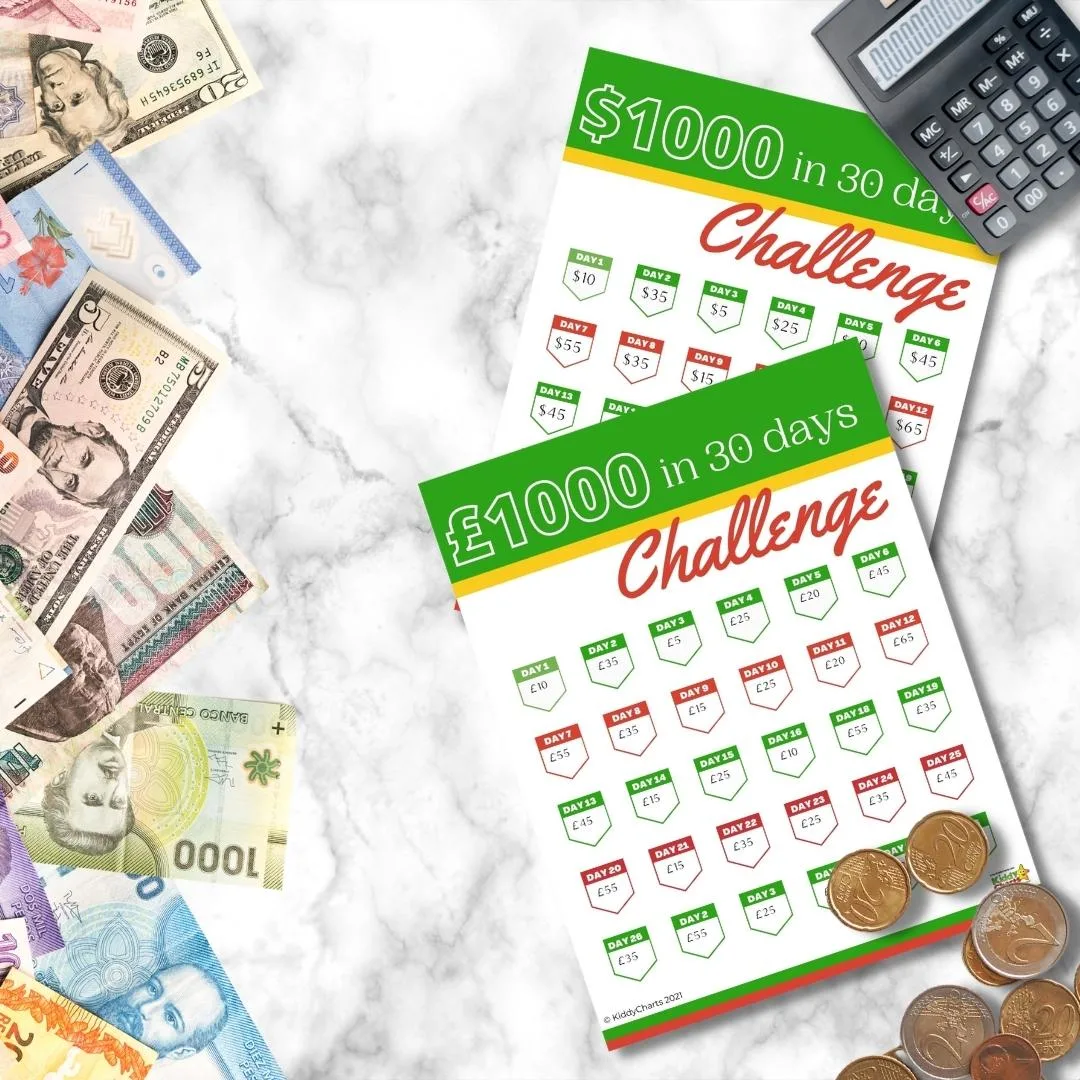One of the most frustrating things about having kids, aside from never being able to go out again, is that they KEEP on losing things. As they grow older, the value of said “things” can become quite a drain on resources. We graduate from losing water bottles and swim caps, to mobile phones, and branded bags, shoes and hoodies! We are here to help though, and we’ve got a list of ideas for you to help your kids and you. These ideas include a great offer for SO-SURE mobile phone insurance, and contents insurance. You even get a £15 Amazon voucher with the mobile insurance offer – use KIDDY15 at check out (T&Cs apply; click the terms and conditions link on the landing page).
This is a sponsored post containing affiliate links.
This article isn’t all about getting insurance in place though, there are other ideas as well for making things run more smoothly so you aren’t reaching for the wallet all the time when another item goes missing. Check out ALL the tips below. Finally, we’ve got a wonderful free printable for you all too. A mobile use contract, so that you can help your kids stay safe on their phones as well.
1. Get SO-SURE contents insurance and mobile phone insurance : £15 Amazon voucher for buying mobile insurance (KIDDY15)!
It is inevitable that things will get lost, and even potentially broken as your kids approach their teenage years. Walking to school on their own, and going to locations like the park, skate park, and basketball courts – can you tell we are speaking from experience – can easily mean lost or damaged phones.
Get the insurance in place for as little as a few pounds a month, and you won’t have to fork out regularly on replacement phones, watches, bags, etc. Pick content insurances, such as SO-SURE, where there is flexibility within the cover too.
At the moment, SO-SURE is offering a free £15 Amazon voucher to our readers too for signing up to the SO-SURE mobile insurance, so what have you got to lose? JUST USE KIDDY15 ON CHECK OUT!
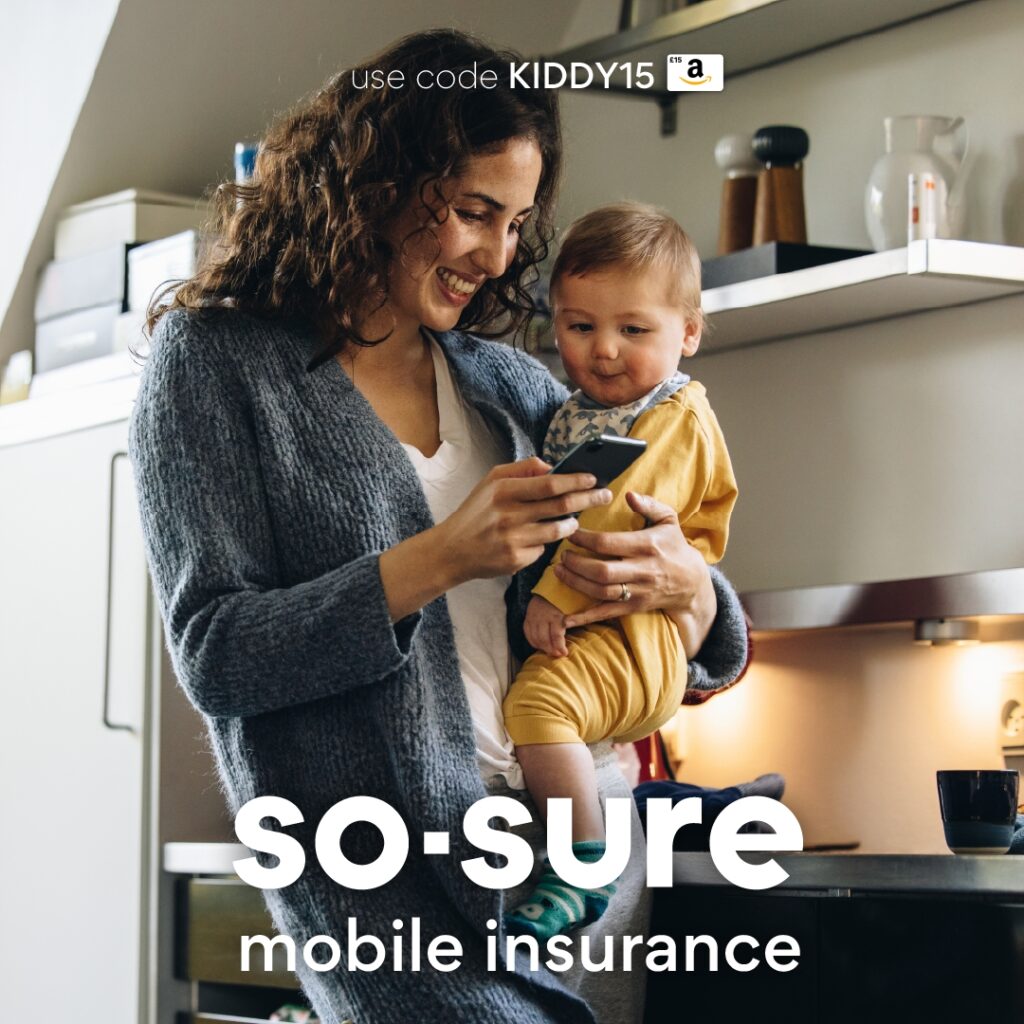

2. Checklists are your friend
Lists aren’t always a welcome thing in a kids life! They aren’t always THAT welcome in adult lives too. Even though we love to get organised on KiddyCharts, and have a whole organised parents section – we resist lists. Get into the habit of using them with the kids where you can, for school bags, for swim bags, for anything! Even if its a verbal checklist that they run through whenever they leave somewhere, it is better than just leaving without the thought that they have taken everything with them.
Purse, school pass, mobile phone, and pencil case.
It really can be that simple!
For some of the bigger things they need to remember – why not find a mobile phone app that works for them, and set up checklists for things they always need to remember?


3. Try to get them to form helpful habits
With the checklist idea above, we are also developing habits with them – so they get used to the mental check when they leave that they have everything. Getting kids used to helpful habits around remembering their stuff is really important. Keep doing something regularly enough, and it becomes second nature to them.


4. Be understanding when it goes wrong
It is SO easy to yell, and get frustrated when the latest thing goes missing. Try and be understanding you can. This is for a few reasons:
- They are MUCH more likely to tell you they have lost something if you don’t berate them too much when they do, and are understanding. If they tell you sooner rather than later, you are more likely to be able to find things, or work things out. If they leave it for days, zero chance of working out where the item is now,
- It doesn’t work in teaching them to remember things! If you shout, they are more likely to go into panic mode and that won’t help them to work out what happened. Kicking in a stress response makes us more confused, and doesn’t offer the clarity of mind to help us problem solve.


5. Consider neurodiversity
Consider the possibility that your child may have an underlying reason for forgetting things. ADHD results in working memory problems, and we are notorious for losing things as a result. It can have a significant impact on self esteem; a lifetime of mislaying things. Regularly calling yourself stupid takes its tole. Look into it with your child, thinking about the other traits. It may or may not be right, but it does no harm to consider it. 1 in 20 people have diagnosed ADHD, and this number is rising.


6. Label things: Discretely if its a teen!
When the kids are smaller, just bung a label on everything and anything! There are loads of labels to choose from, and bound to be one that the kids love. Label all your clothes as well – this is vital to stop confusion in changing rooms of course as well. My Nametags are a good option, but plenty of others.
Make sure if you are labelling items for teens that it is subtle, as clearly it isn’t cool to have your name all over something in case you lose it. 😂

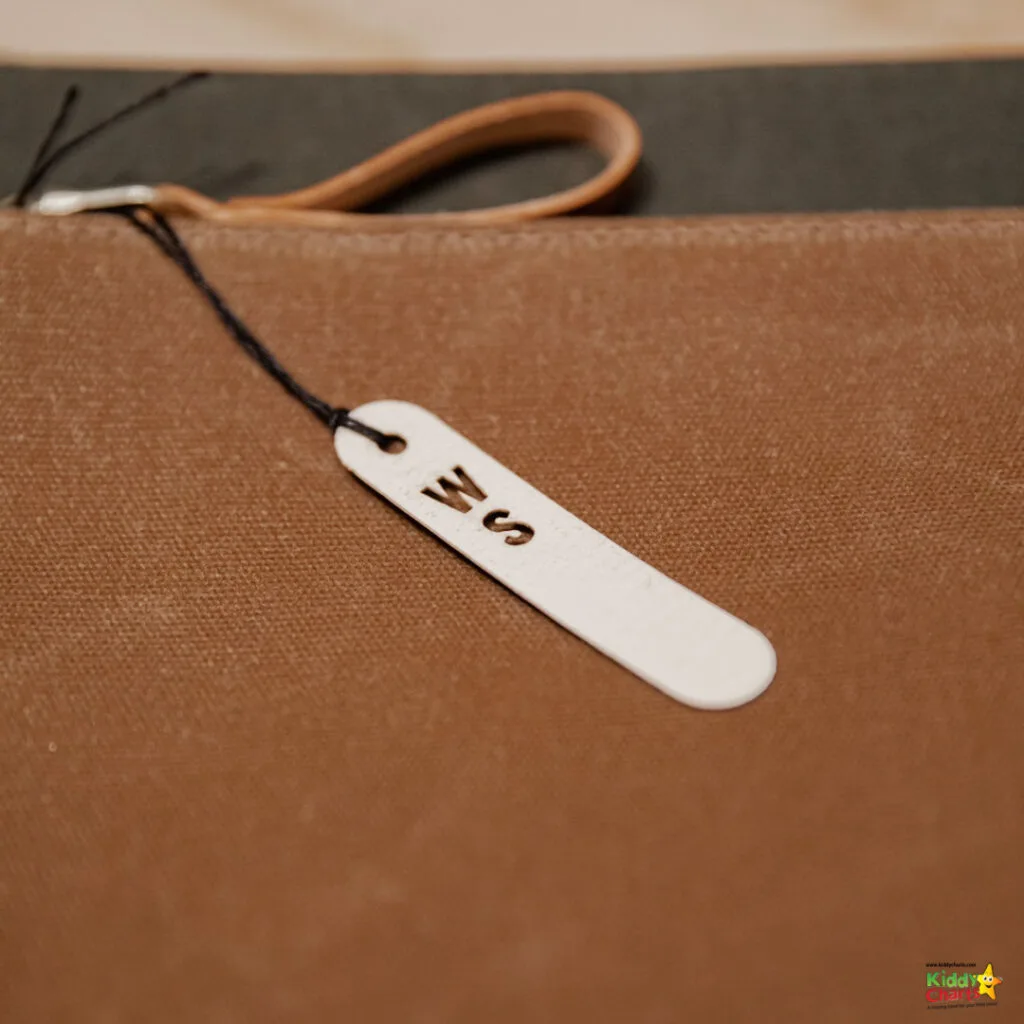
7. Get them to pay for it or the SO-SURE insurance if it goes missing when they are older
It probably isn’t suitable to get kids to PAY for the items they lose until they are of an age where they really CAN be responsible enough for their things. We decided that secondary school was a marker for this, so if things were lost there, then kids need to replace them themselves.
We appreciate that this might not be for everyone, but it is 100% the case that if a child has to pay from their pocket money or their own earnings for things they lose, they are much less likely to lose them!
You might want to consider as they get older, asking them to contribute to something like the SO-SURE mobile insurance too? Depending on what they are earning of course.
8. Consider rewards IF they are struggling
If you find that you are trying all of the above and it is STILL not working with your kids, then consider rewarding your kids for keeping their stuff together. For example, perhaps not leaving their swim gear in the changing room ever for a week’s swimming, they can choose a treat from the vending machine at the end of that week.
Sometimes rewards are the only way and it really is OK to employ them if you need to.


9. Teach them about the value of money / things early on
It is important to help kids understand the value of their possessions and money as soon as we can; from modelling the behaviour we expect, to gently teaching them.
For example, if something gets broken, it is important not to replace it. Children as young as three need to learn that if they aren’t gentle with things, and they break, they won’t be able to play with those things anymore. That means they will learn to value what they have, and appreciate it more.
Teaching them about money, and how much things cost, is also important. From playing games in shops, to understand wages and salaries. Nothing teaches kids more than getting them to do jobs around the house for a little pay, and them getting their own jobs as soon as possible.
10. Keep it light and fun where you can
Finally, don’t make a song and dance of it all! Keep all this learning fun, and light. That way, they are much less likely to be anxious about losing things, and so less likely to lose them *ironically* 😂
That’s a lot of ideas – and we know it isn’t easy when it happens, and we hope some of these ideas are useful for you too!
Last, and my no means least, why not draw up contract for mobile phone use which includes not losing the phone as part of you paying for the contract itself.
You can renegotiate this as they child gets older, and perhaps they can even start to pay some of the contract, depending on the type of phone they want, and whether they have starting working or not. These things are always flexible after all.


What does the mobile use contract look like
We have as always, got two options for you, one with a few ideas on already, and the other completely blank for you to print out and add your own thoughts and ideas.


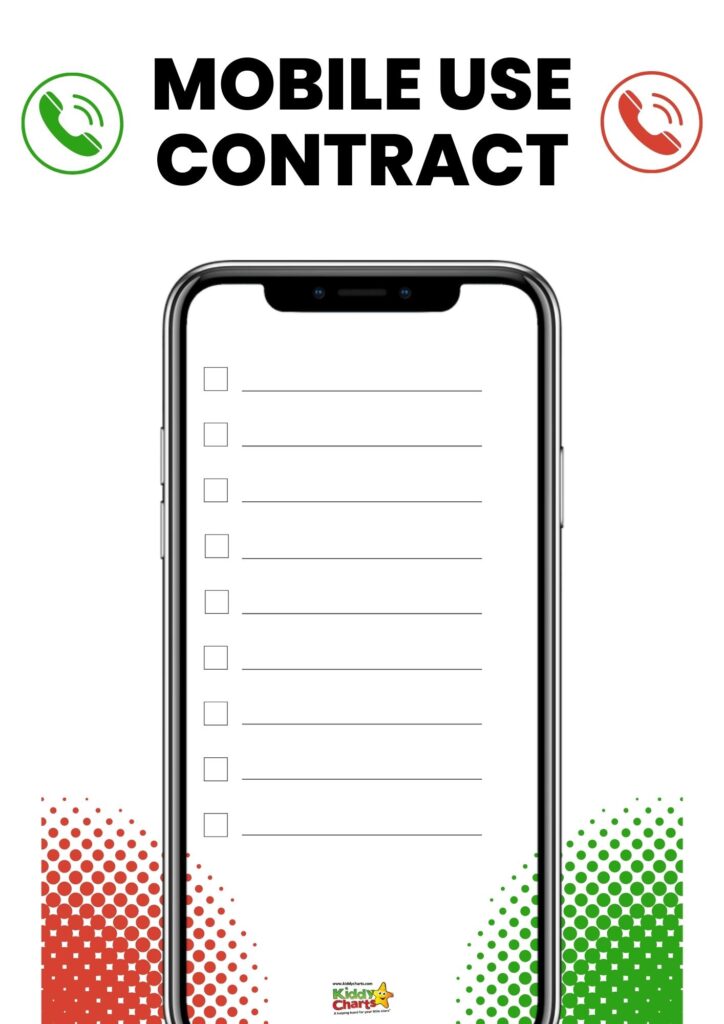

The ideas we have popped on the contract for you already are below, with a little more explanation:
- No more than ___ hours a day: Decide what is a reasonable amount of time to be on the phone in a day for younger kids, and gradually they can self regulate as they get older (we hope),
- Check before buying: Agree that no in app purchases occur without them asking first. For some phones, this can also be switched off. For example, you can do this within Apple Family,
- Off 1hr before bedtime: This is particularly important if your child struggles with sleep, no screen time an hour before bed helps them to sleep. We had no phones in the bedroom overnight when kids were younger,
- Report if feel unsafe: Encourage them to come to you or report to CEOP if they are worked about something,
- Block if I don’t know them: Don’t accept people they don’t know as friends on their phones,
- Keep location services on: Keep location services on within your family so that you can see where they are if need be (relevant to Apple phones, and possibly Snapmaps as kids get older), and finally
- Be kind: Teach them to be kind to others whenever they can on their phones and beyond.
Obviously you know your teens / kids best, so we have also provided a blank contract too in case you would like to do your own thing with them. You might want to add a note around looking after your phone, just in case though, you can always get the mobile insurance from SO-SURE too.
Let us know if you think we are missing something, and we can always add in at a later date.


To download this, just click on the button or the image below and it is yours!
We hope you like this content, if you are looking for other money-saving ideas on the site – why not check some of these out too?
Money saving printables on KiddyCharts
Here are some more ideas and printables for saving money on KiddyCharts - we hope that these help you out a little bit more with those money worries.
Mortgage deposit tracker: 5 signs you're ready to buy not rent the family home
Get that mortgage sorted with this deposit tracker - and easy way to save for that perfect house.
How to conserve energy at home: Includes 15-point checklist
Some ideas for conserve energy in the home, which of course, will save you money.
Money saving challenge printable: How to save 1000 in a month
Save yourself 1000 in a month with this easy to use and very cool printable idea.
5 tips for making eating out cheaper: Including budget envelopes
Eating out doesn't HAVE to be hard to do - here are some budgeting envelopes to help you save for those nights out and other ideas around the house.
Raise a saver not a spender with these FIVE money saving activities
More tips for raising a money saver, and not someone that spends whenever they can!
There are some more money saving ideas here off site too:
Money savings ideas for parents on the internet
More ideas for you from t'interwebs that focus on finance and money savings for parents.
10 Money Saving Ideas for New Parents
A list of a a few specific tips for helping you to save money as a parent from the Family Focus Blog.
Four money saving tips for new parents
It is difficult enough having a new baby without money worries - so here we are with some thoughts for you on how to help save as a new parent.
5 Ways to Teach Your Kids about Money
Another piggy bank - and this time looking at how we can teach our kids about money, instead of helping us save.
If you like what you see – why not sign up to our newsletter as well?
Thanks as always for stopping by, and we do hope to see you again on the site soon. Don’t forget you can get a £15 Amazon voucher if you take out SO-SURE mobile insurance – just use KIDDY15 on checkout (Ts and Cs apply – click the Terms and Conditions link on the landing page).
Take care,
Helen






